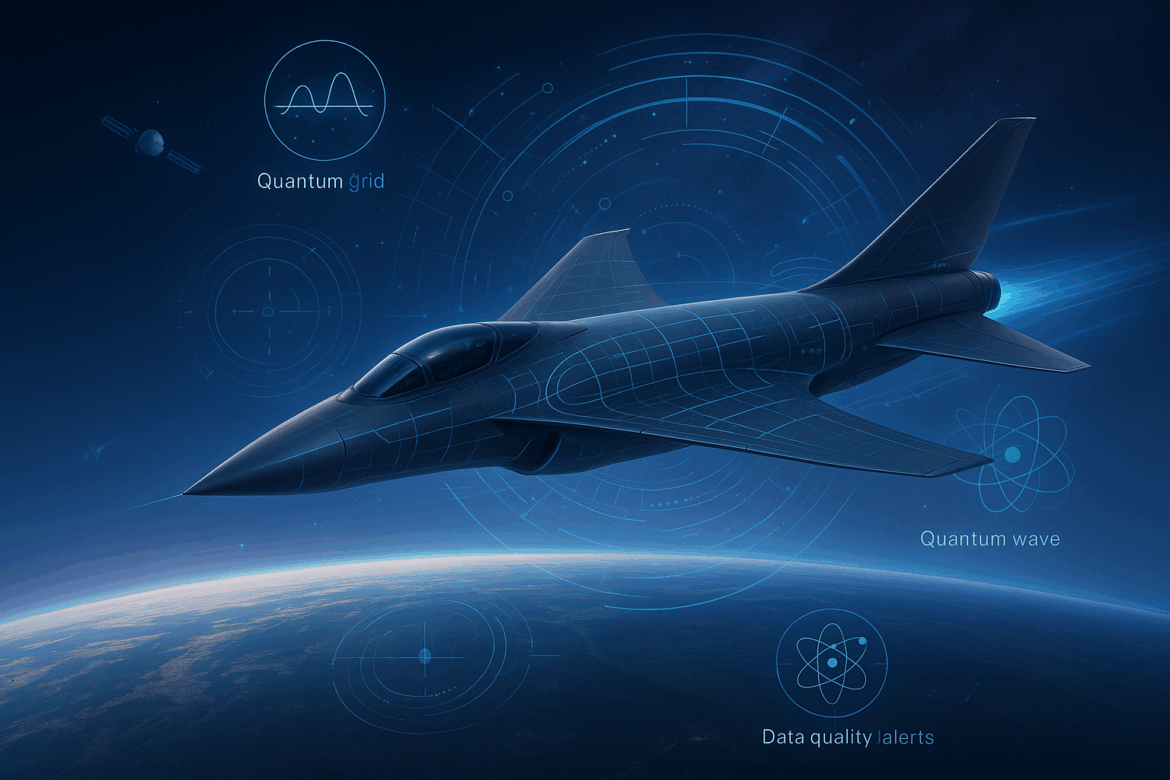Today’s planes subs, and spaceships need to be super accurate. Even a small mistake in finding their way can cause big problems. That’s why people are excited about a new tech called quantum sensing — it helps systems get more precise and reliable even when GPS doesn’t work.
Let’s check out what quantum sensing is how it does its job, and why it’s such a game-changer for navigation and aerospace systems.
What Is Quantum Sensing in Simple Terms?
Quantum sensing uses quantum physics rules to measure stuff well. Instead of normal sensors, these use tiny bits like atoms or electrons, which act in weird ways when things around them change.
For instance, a quantum sensor might spot:
- Small changes in gravity
- Little shifts in movement or heading
- Even weak magnetic fields
In other words, it can detect things that regular sensors might overlook — and that’s what makes it so useful.
Why Do We Need It for Navigation?
Most of the world’s navigation depends a lot on GPS (Global Positioning System). It works fine in most areas — but not everywhere. In tunnels deep water underground, or during a military blackout, GPS can get blocked or jammed.
This is where quantum sensing steps in:
- It enables navigation without satellites,
- It provides much better precision and dependability,
- It’s tougher to interfere with or fool.
This makes it ideal for ships, planes, and self-driving cars that must know their exact location at all times.
Real-World Uses in Aerospace
Quantum sensing is now being tested and applied in aerospace systems to enhance their safety, intelligence, and productivity. Some real-world uses include:
1. Enhanced Inertial Navigation
Quantum sensors such as accelerometers and gyroscopes help aircraft and spacecraft figure out their position without needing outside signals. This proves helpful during extended flights or space missions.
2. Improved Planetary Landing
Gravity sensors based on quantum tech can help spacecraft gauge surface conditions and choose safe landing areas.
3. High-Precision Earth Observation
Quantum sensors can spot small shifts in Earth’s gravity or magnetic field. This helps satellites keep a closer eye on changes in the environment.
A Big Deal for Military and Defense
Quantum sensors are becoming more important in defense. Military groups can use them to:
- Navigate without GPS in enemy areas,
- Find submarines by gravity differences,
- Send secret messages that are tough to crack.
They boost security, accuracy, and smart planning — all while being tougher to block or mess with.
Challenges Still Exist
Sure, like all new tech, quantum sensing isn’t perfect. Some common problems include:
- High costs and complex gear,
- Need for super-cold temps (in some cases),
- thrown off by outside noise.
Scientists are busy trying to fix these issues. As the tech gets better, it’ll shrink, cost less, and work more in regular settings.
What’s Coming Up for Quantum Navigation?
Down the road, we might see:
- Planes with built-in quantum nav systems working even when GPS goes down,
- Spaceships using quantum tools to land smoother and explore deep space,
- Army and business drones that fly with spot-on accuracy.
Experts think quantum sensing will move from labs into real products across many fields — not just aerospace.
